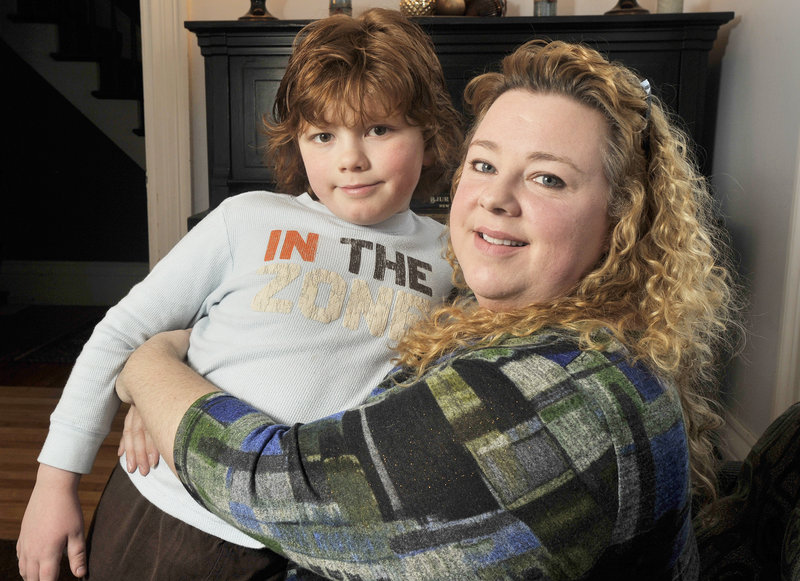Ginger Taylor’s son Chandler was diagnosed with autism when he was 2 years old.
Chandler, now 10, is a fourth-grade student in the Brunswick public school system.
Taylor’s son is a “wanderer,” which means his parents have to lock doors to prevent him from leaving home without supervision. His verbal skills are also limited.
Though Chandler is doing well in school, Taylor worries that other autistic children may lose services they depend on if diagnostic criteria for autism are changed.
The effort to redefine what constitutes autism is the first in two decades. Doctors on the American Psychiatric Association panel working on the new definition want to eliminate separate terms such as Asperger’s disorder, a high-functioning autism disorder, and lump them all into an “autism spectrum disorder” category. Those changes, if approved, would not take effect until May 2013.
Some parents are concerned that higher-functioning children might not be included in the new category and therefore not qualify for services such as having a school aide, or receiving speech, occupational or physical therapy services.
“We have spent more than a decade tracking these kids. Now, we are going to throw millions of dollars away that have been spent on research and tracking to follow new criteria,” Taylor said.
Taylor said that because of his specific needs, her son probably wouldn’t lose any services. But she said school systems are looking for ways to cut costs. “This could be a way for them to cut off some of the higher-functioning students,” she said.
Rico Senence is worried about losing services for his son, who has been diagnosed with Asperger’s disorder.
Dakotah Senence, 12, is a seventh-grader at Brunswick Junior High School. He has difficulty understanding the nuances of personal relationships and he struggles – if the subject matter doesn’t interest him – with reading comprehension. Dakotah’s school plan also calls for him to be accompanied by an ed tech.
“I’m not overly concerned, but then I don’t have all the details,” Senence said. “The main concerns I have is are these changes being made for budgetary reasons, as a way to push some of the higher-functioning kids into the mainstream.”
According to the Autism Society of Maine, reducing the costs of special needs programs is not the motivating factor behind the proposed changes.
Cathy Dionne, the society’s director, said the American Psychiatric Association routinely upgrades the reference manual used for diagnosing mental illnesses. Though the autism changes have been under review for at least a year, Dionne said they stirred up a lot of concern once parents heard about them.
“Parents were a little nervous,” Dionne said.
Dionne said the society has tried to address those concerns on its website. One of the most commonly asked questions was whether a child diagnosed with Asperger’s or PDD-NOS (Pervasive Development Disorder, Not Otherwise Specified) have to be re-evaluated.
The answer is not right away. Schools and agencies typically re-evaluate students every two to three years.
Dionne can understand parents’ concerns. Her 18-year-old son Ben is autistic. He doesn’t speak and he rocks constantly. She is also concerned with what will happen to him when he turns 20 – under state law, a student has to leave school at that age.
Dionne said she may have to quit her job so that she can care for her son because there is no funding at the state level to educate or provide services for young people leaving high school. She said there are long waiting lists for post-high school services.
“When a person reaches the age of 20, why do we give up on them?” Dionne asked.
Dionne said the society will hold its 10th annual walk for autism on April 29 in Biddeford, Bangor, Farmington and Presque Isle. April is Autism Awareness month.
Staff Writer Dennis Hoey can be contacted at 791-6365 or at:
dhoey@pressherald.com
Send questions/comments to the editors.



